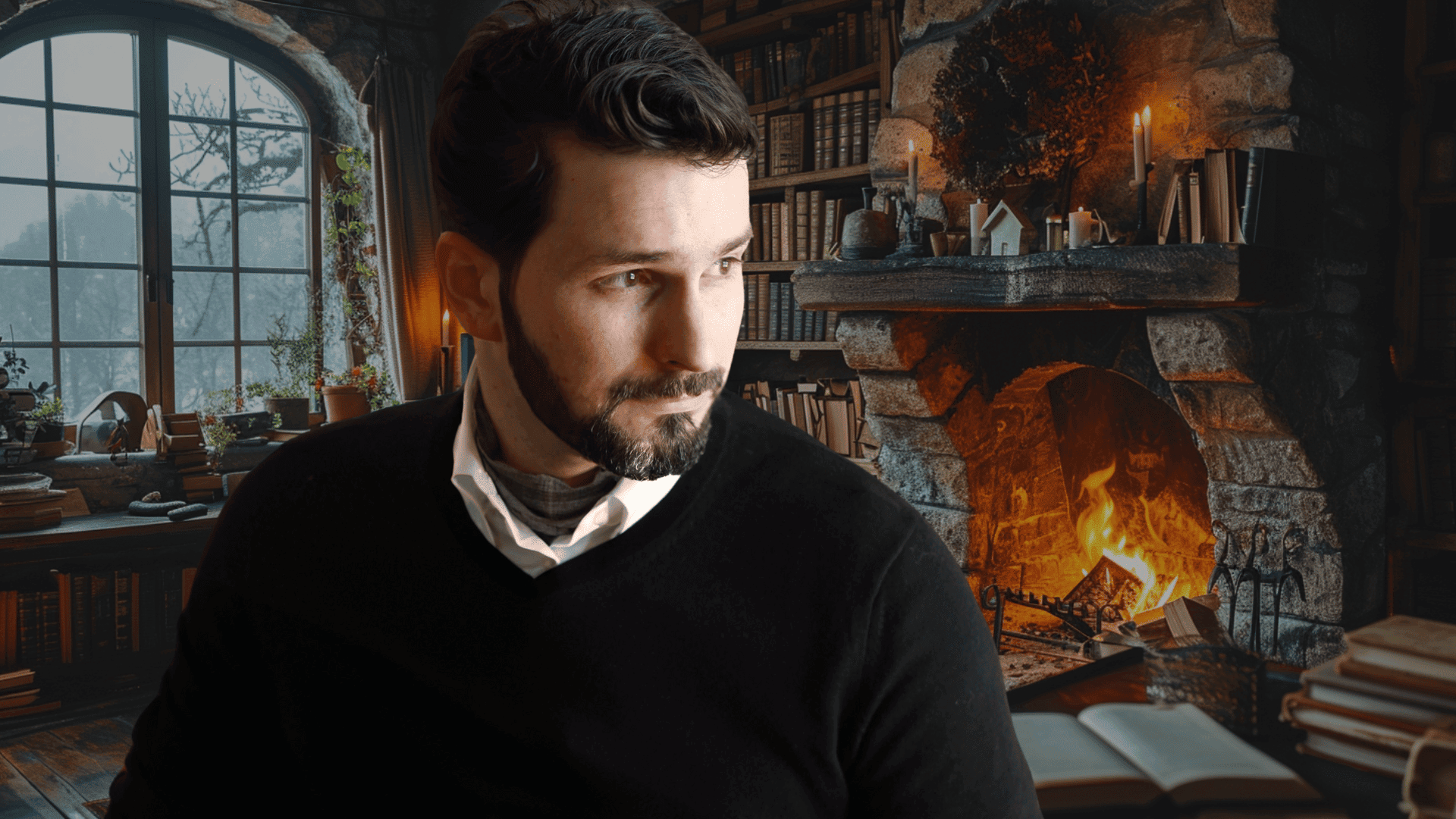The challenge in telling our tales is not if we’ll begin. It’s how seriously we’re going to follow through.
Some are going to be cautionary tales, peopled by antiheroes who help us see the consequences of our actions, and give us a chance to vicariously experience the effects of evil. House of Cards is such an example.
Some are tales of goodness triumphing over evil, such as Lord of the Rings or Captain America.
And some are meant to upend and confuse the tropes we take for granted, to help us see things in a new light.
“In his essay “The Holiness of the Ordinary,” Percy contends that “whatever else the benefits of the Catholic faith, it is of a particularly felicitous use to the novelist,” and I’d like to second that, too. It gives a writer that dramatic itch for sin, for judgment and damnation, for the rottenness of the world and the holy in us all.” William Giraldi, ‘Confessions of a Catholic Novelist’
More often than not, stories are about how someone deals with the bad situation they are dealt.
In the east, they talk about how dharma meets karma. How our duty meets with the hand we’re dealt.
Steve Rogers has become the poster child for an past America where morality was a cultural norm, for some. While he is passionately loved for his simplicity, his real story is that he learns to mature and allow for nuance.
Some stories are horror tales, like ‘The Rite,’ designed to take the reality of spiritual warfare and internalize it, helping the reader to become intimately familiar with elements of angels and demons.
These can be conversion experiences.
And there are plenty of others.
“If I had to say what a “Catholic novel” is, I could only say that it is one that represents reality adequately as we see it manifested in this world of things and human relationships.” Flannery O’Connor, ‘Catholic Novelists and Their Readers’
What makes a Catholic author distinct from any other author is how we integrate our Faith. Like with our Faith lives, we are free to any kind of good.
“Catholic life as seen by a Catholic doesn’t always make comfortable reading for Catholics…” Flannery O’Connor, ‘Catholic Novelists and Their Readers’
Sometimes, the good doesn’t feel warm and fuzzy. Sometimes, true and transformative good feels like a Lovecraftian monster.
Sometimes, the thing we absolutely need is the one thing we are convinced we’ll never choose. To us, it is as terrifying and savage as a multi-crowned, multi-headed dragon.
And our other options feel easy and comforting, with dapper devils to keep things safe.
Heaven is utterly stunning and utterly monstrous, depending on our state of soul. Depending on our attitude. The standard reaction to a ‘mere’ angel is to flatline with terror and awe. Perhaps that’s just normal to be terrified of true goodness.
And even getting to it is a harsh, unlit journey. Even the greatest mystics realize that they have to trek through interminable dark spaces and dark nights. The road is made of serious stages of horrifying self-emptying sacrifice, with nothing to hold onto but the memory of a hope.
Christ promised that the yoke is easy, and the burden light. But that depends on us. If we aren’t prepared or serious about goodness, we will convert the love of the cross into hell itself.
If we are open to the Holy Spirit, we begin to understand that every weight and trial for the love of God can get easier. The trials and journey don’t get easier, but we become broadened and strengthened, heavier with the dew of Heaven, and capable of bearing more.
In ‘The Great Divorce,’ CS Lewis stories how a set of tourists take a daytrip to the rim of Heaven. There, they find that they can’t even walk on the grass or touch a tree because they are so ephemeral. They must drink a glass of water to start to solidify and gain weight, the weight of glory.
As authors, or even as human beings, we should be aware that the same blood flows in our veins. The same weakness.
Sometimes it is critical to follow a character down the sewers and skyscrapers of their sin. Perhaps to leave them there. Perhaps if only to show that anyone can fall.
Simone Weil, a noted Jewish philosopher, remarked, “Imaginary evil is romantic and varied; real evil is gloomy, monotonous, barren, boring. Imaginary good is boring; real good is always new, marvelous, intoxicating.”
And we enter a journey like that with great compassion and understanding. We step into a shadow of divine omniscience, and love our character through every terrible moment.
And we understand their inability to change, to see, to grow.
If we’re going to be real about evil, then we can’t hold back about its effects.
Stories like House of Cards, or Game of Thrones highlight the riveting power of evil living. That septic siren call to act free of consequences.
But there’s always a price, and the characters always pay it.
Evil is never a comfortable life. It spins up a world of fear, deceit, disloyalty, greed, and most of all, the leprotic lack of any real peace.
“Catholics already have the truth, whereas novelists write novels in part because they don’t. The Church has all the righteous answers; a novel is after the right questions. “We Catholics,” wrote O’Connor, “are very much given to the Instant Answer. Fiction doesn’t have any.” Flannery O’Connor ‘Catholic Novelists and Their Readers’
Deep down, we often hope to get away with our little evils. Or the big oness.
Fiction is the imaginary arena where we field-test our fantasies. Where we live out a little catharsis, and hopefully horrify ourselves with how easy it would be to fall.
Fiction is a reminder that we are all Adam, and we are all sinners. And we are all fighters, with incredible potential.
Chesterton once said that a genius in Christianity is the Confessional. The ‘magical’ ability to separate sin from sinner.
Catholicism truly understands just how dark and obsessed the human mind and heart can be.
Catholicism has chronicled and counseled for two millennia, and lived through every form of evil.
The Christ impulse behind all good everywhere can break through fastest through hearts alive in Christ, and have inspired and witnessed to countless acts of beauty and heroism, flooding the world with bold new ideas that continues to shatter expectations and shake cultures.
Simple ideas, as primal as our natures and as unexpectedly sublime as the Holy Family. Ideas that life is always valuable regardless the age. That there are two distinct natures among humans. That evil is to be avoided and good done.
Being a Catholic author doesn’t mean that we have less freedom to be as honest with our subject matter as we’d like. It means that we have more.
Being Catholic means that we can shine a clearer light on the forces and effects truly in play with someone’s environment or decisions.
Our faith isn’t a straitjacket for our creativity. It’s a lifeline that allows us to go anywhere and explore anything, without fear of losing ourselves.
Catholic fiction doesn’t always provide the answers.
In fact, fiction doesn’t always either.
The goal of fiction is to tell a riveting story. The inspiration may be to share an idea, or hone the question.
Sometimes a great deal of good can be done by clarifying the question, and eliciting in the reader a desire to go on their own journey for the answer.
Sometimes a story is about creating a mood, or a feeling, an inner space that allows the reader to find their own answer.
Or to spark an insight to continue their own journey.
As authors, perhaps we begin to see the bend of our own lives. How sin and evil is like a gravity that we must learn to push against so that we can fly.
How to learn the deep wisdom that can understand the way good can be brought out of evil, where a Sorcerer Supreme can tap into the dark realm to hold a greater evil at bay, without losing their sense of the sacred.
That what is truly evil comes from the heart of a man. Yours and mine.
“Why should a man be scorned if, finding himself in prison, he tries to get out and go home? Or if, when he cannot do so, he thinks and talks about other topics than jailers and prison-walls? The world outside has not become less real because the prisoner cannot see it. In using escape in this way the critics …are confusing, not always by sincere error, the Escape of the Prisoner with the Flight of the Deserter.” On Fairy Stories, J. R. R. Tolkien



I liked this section’s emphasis on the reader’s role in a story. It’s good to remember that the author isn’t the only one creating the story – the reader can, in a sense, complete the story when they reflect on it and apply it to their own life experiences.
Isn’t that a fascinating point? I like how you’ve put it. It changes our view of the experience of a novel, doesn’t it?